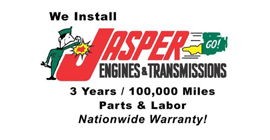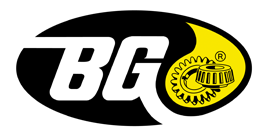281-589-8984 | 12510 Oxford Park Drive Houston, TX 77082
AUTONET TV
Archive for November 2020Go Big or Go Home: Upsize Your Wheels at Westside AutomotivePosted November 29, 2020 10:25 AMA lot of us Houston drivers like our vehicles to reflect our personalities. We're picky about color and body style. We'll customize anything from floor mats to window tints to license plates. One popular way for TX motorists to customize a vehicle is to get new wheels. Westside Automotive Low Power Mystery (Ignition Coil Service)Posted November 22, 2020 11:40 AMIt's no fun when your vehicle just doesn't run the way it used to. You may notice (especially in cold weather) the engine won't start easily or when it does start, it doesn't run smoothly. It may not have much power at all. You also may have had to stop at the gas station more often, a sign your fuel economy isn't what it used to be. There could be a few different things that cause those symptoms, but one culprit could be a bad ignition coil. The coil takes the voltage from your battery and multiplies it before that power is sent over to a spark plug. That allows the plug to fire off a good jolt of electricity that ignites the fuel in your cylinder and powers the engine. There's usually one ignition coil for each cylinder (or sometimes for a pair of cylinders). If only one of them is not pushing out enough electricity, it can cause big trouble with your engine performance. Other signs of a bad ignition coil include engine backfire, an oil leak and your Check Engine light coming on. When that light comes on and you have some of those other signs, you need to have your repair facility check things out fairly soon because you may be damaging your engine and wind up with a far more expensive repair. A technician will check for a computer code to pinpoint which cylinder is having the problem. Using other diagnostics, the technician can rule out other components that might be causing the engine to misfire. Ignition coils usually last 100,000 miles/160,000 km, but other engine conditions can cause them to fail before then. Your service advisor may suggest getting all your coils replaced even though only one is malfunctioning. That's probably a good idea in a higher mileage vehicle since the other coils may be close to failure, too. It's also wise to do that if your vehicle's coils are located in a hard-to-reach spot so you likely won't have to spend the money for that labor again when another one fails. Westside Automotive A Cool and Smooth Transmission in HoustonPosted November 15, 2020 7:45 AMWhen it comes to preventive maintenance on our vehicles, most of us Houston drivers remember to get our oil changed. But services that occur at longer intervals — like transmission service — sometimes get overlooked. Yet transmission service is part of car care. A poorly maintained transmission will fail and lead to repairs. Westside Automotive What to Do in Case of an Accident in HoustonPosted November 8, 2020 8:45 AMScreeching tires, crunching metal – it's an accident! If you've ever been in a car accident in Houston, even a minor one, you know how upsetting it can be. It's hard to think straight and know what to do.
Also take down a description of the other vehicle, license plate and vehicle identification number (VIN). Most TX auto insurance companies don't record license plate numbers, so the VIN is the best way to track a vehicle in TX. Contact Westside Automotive to learn more about what to do in case of an auto accident. 12510 Oxford Park Dr. No Fountain of Youth (Aging Tires)Posted November 1, 2020 8:52 AMCan you think of anyone who enjoys aging? Wrinkles where you don't want them, gray hair, eyes that won't focus any more, no stamina. Believe it or not, your tires age, too, and they don't get better the older they get. And here's the important thing to know, even if they can still pass a tread depth test, they may simply be too old to be safe Here's the best way to understand this. Have you ever found an old deck of playing cards with a rubber band wrapped around them? Try stretching the rubber band. SNAP! It's all cracked and brittle. And you haven't stressed that rubber one bit since the time you put them in that drawer. Now you know what's happening to your tires. Rubber ages. Just like us, the day we come into the world, we start to go downhill (no pun intended). Oh, engineers are able to make a tire last longer than ever before. But that gas that keeps us alive—oxygen—seems to love to chemically mix with some components in rubber. Oxidation causes rubber to become hard and brittle. The rubber band test. Is there an age test that can tell you when a tire is tool old to roll? Well, not really. They don't all age the same. Hot climates can make tires wear out more quickly. Some experts say a tire can last up to 10 years but should be inspected every year after the age of five. Others say tires should have an expiration date at six years old. Since no one would ever ask a tire its age, how do you know how old one is? Believe it or not, tires made after the year 2000 have a date code stamped on either the inside or the outside of the sidewall. It's a four-digit numbers; the first two tell you the week, the second two tell you the year. So if it has the number 1916, it was made in the 21st week of 2016. Another way to find out if your tires still have enough life in them is to have your vehicle service facility inspect them. They look for signs of age, such as developing cracks in the rubber, the condition of the sidewalls and, of course, that old standby: tread. If it's time to "retire" them, discuss options with your service advisor.
| ||
SearchArchiveDecember 2019 (15)January 2020 (5) February 2020 (4) March 2020 (5) April 2020 (4) May 2020 (5) June 2020 (4) July 2020 (4) August 2020 (5) September 2020 (4) October 2020 (4) November 2020 (5) December 2020 (4) January 2021 (6) February 2021 (4) March 2021 (4) April 2021 (4) May 2021 (5) June 2021 (4) July 2021 (4) August 2021 (5) September 2021 (4) October 2021 (5) November 2021 (4) December 2021 (4) January 2022 (6) February 2022 (4) March 2022 (4) April 2022 (4) May 2022 (5) June 2022 (4) July 2022 (5) August 2022 (4) September 2022 (4) October 2022 (5) November 2022 (4) December 2022 (4) January 2023 (5) February 2023 (4) March 2023 (4) April 2023 (5) May 2023 (4) June 2023 (4) July 2023 (5) August 2023 (4) September 2023 (4) October 2023 (5) November 2023 (4) December 2023 (5) January 2024 (5) February 2024 (4) March 2024 (5) April 2024 (3) | CategoriesAir Conditioning (4)Alignment (4)Alternator (3)Auto Safety (3)Automotive News (5)Battery (8)Brakes (14)Cabin Air Filter (4)Check Engine Light (3)Cooling System (7)Customer Detective Work (1)Dashboard (2)Diagnostics (3)Diesel Maintenance (1)Differential Service (1)Drive Train (3)Exhaust (3)Fluids (5)Fuel Economy (6)Fuel Saving Tip: Slow Down (1)Fuel System (21)Headlamps (2)Inspection (2)Keys to a long lasting vehicle (1)Maintenance (23)Oil Change (4)Older Vehicles (3)Parts (2)PCV Valve (1)Safe Driving (1)Safety (2)Serpentine Belt (2)Service Intervals (4)Service Standards (5)Shocks & Struts (3)Steering (7)Timing Belt (5)Tires (2)Tires and Wheels (25)TPMS (2)Transmission (6)Trip Inspection (2)What Customers Should Know (31)Windshield Wipers (3)Winter Prep (1)Winter Tires (1) | |
Testimonials
Kim H, 04/18/2024
Justin took great care us and was quick to resolve the issues. Thank you so much!












